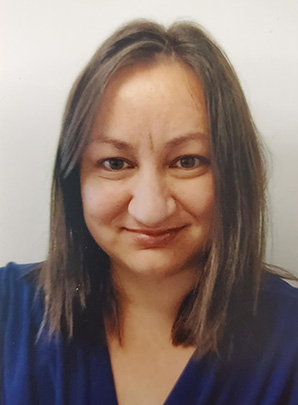For Any Cancer Diagnosis
- Q.
I am a newly diagnosed cancer patient. Needless to say, I'm on an emotional roller coaster as my life has changed drastically. The side effects have cause multiple issues, many not directly treatable and as a result I worry and experience anxiety on a number of issues: relationships, fertility, reoccurring cancer, finances and life expectancy. My question is how does a cancer patient find a therapist/psychiatrist (particularly one with experience with cancer patients)? Secondly, should cancer patients see a therapist or a psychiatrist?
A.I’m sorry that you are under so much stress and dealing with so much. It is perfectly understandable that you would have a lot of anxiety around these important issues. Because the mind and body are so connected, side effects from treatment often impact one’s state of mind as well. Getting emotional support as you face this experience is wise.
Here at CancerCare, we are oncology social workers and offer in-person counseling for people in New York City, New Jersey and Long Island. If you live outside of those areas, we offer short-term telephone counseling to help you cope with your cancer experience.
To find a longer-term therapist in your area who is skilled in working with people affected by cancer, try:
- Help Starts Here, through the National Association of Social Workers offers an online directory of clinical social workers, psychologists, psychiatrists, and other licensed professionals. You can search each database for clinicians who have experience in cancer issues.
Most therapists are social workers and psychologists, but some psychiatrists also provide therapy in private practice. Because of their medical training, psychiatrists are the only mental health professionals who can prescribe psychotropic medications. Many people see social workers, psychologists or other types of counselors for talk therapy while also seeing a psychiatrist for medication evaluation and monitoring, on a less frequent basis.
When choosing a therapist, one of the most important criteria to keep in mind is the rapport you have with him or her. You may have to shop around and it might take several tries. After each initial visit, ask yourself: How did I connect with that person? Does it seem like he/she “got” me? Can I talk freely with that person? Only you can decide which therapist is right for you. Pick someone with whom you can be open and honest, and who can support you through this challenging journey.
- Q.
My aunt was diagnosed with cancer a few weeks ago and she's scared, anxious and stressed out. I'm trying to find anything that will help her and looking for suggestions.
A.First of all, I commend you for stepping up to help your aunt. The more supports in place for her, the better. That being said, it is also important that she can share her feelings and be understood. Cancer can certainly lead someone down a path of great anxiety. Your aunt’s entire world is shaken up right now, so how could she not be scared?
I will share with you some ideas that might help her to self-soothe. One of the first things I talk about with clients is the power of the word “Now” as a mantra. In life in general, we tend to jump ahead of ourselves and usually to the worst possible scenario. And with a cancer diagnosis, it is even more so. When your aunt jumps to the future, I suggest that she uses the word “Now,” as a reminder—of what is—at this moment. Of course, we are human, and she’ll keep jumping ahead, but the word now is a nice reminder of embracing this moment, and a powerful reminder that all we can control is this moment—our now.
I have done much work on coloring with my clients, and recommend it greatly. Coloring is all the rage now, and the reason why is because it works to reduce anxiety. Sitting down and coloring a pattern for 45 minutes will reduce blood pressure, boost the immune system and a myriad of other positives. Even better, add some calming music and your aunt will be surprised how time flashes by, and how relaxed she may feel after her artistic endeavor.
With doctor’s permission, your aunt should still get out there and exercise in a way that is comfortable to her. I call walking “perfect therapy.” We clear our minds and can consider different directions for our life scenarios. It’s also a wonderful low-impact exercise, and this too helps boost the immune system. While I see everyone out with their earbuds pushed in their ears, I suggest leaving the earbuds at home. Instead, listen to the song of the birds, the wind in the trees, or even the bustle of the city.
It’s also imperative that your aunt eats well and makes eating healthful meals a priority; food has a great impact on not only our health, but our mood. One of my favorite websites for healthful meal ideas is www.cookforyourlife.org.
As a caregiver to your aunt, please do not neglect your own self-care. Remember that CancerCare support services are available to those with cancer and their loved ones. Thank you for your question and remember that we are here for you.
- Q.
My mother-in-law was diagnosed with pancreatic cancer last fall. My husband is having a difficult time with the diagnosis, one part of him his preparing, checking her will, and other practical tasks, while the other part of him is very angry—including bitterness towards most in the medical community. This anger is reflected back on myself and our son. I have mentioned counseling to him, to which he said he probably does need, but I need help in getting him to the right sources. I want to be there for support, but also need boundaries of what is acceptable. I appreciate your help with my questions and concerns.
A.I am sorry to hear about your mother-in-law’s diagnosis, and that it has caused conflict within your home. A cancer diagnosis can bring a myriad of emotions—sadness, anger, bitterness, and fear are some of them. Your husband probably feels powerless in his mother’s diagnosis, and that too is causing him a deep unrest in his soul. He wants to do all he can for his mother, but really does not know what might help her. So, what can he do? First thing, you are correct—counseling might help him address his feelings of loss of control and his fear about what may lie ahead for his mother. Talking about fears is often the best way to assuage them. It is very important that he has at least a modicum of self-care in his daily routine. He may be rushing to work, then rushing to visit mom, maybe taking care of some things at home, going to bed late, and not sleeping well. And this means that he is really not taking time to promote his health. Is he eating well, taking walks, listening to music, relaxing?
I am unsure how old your son is, but if he is young enough, I always suggest that you sit at the dinner table (at least once a week—together) and discuss the good things that are happening and what you are grateful for. Promoting gratitude promotes happiness. Having a family movie night where you watch fun and uplifting movies can also be helpful. Promoting laughter and joy is imperative right now so that you recognize that cancer cannot remove the healthy core of your home. Sit next to each other and hold his hand—the power of touch cannot be denied.
You can call our Hopeline at 800-813-4673, and speak to an oncology social worker. We will let you know about our services that may be helpful to you, your husband and your mother-in-law. We do have an online pancreatic cancer caregiver’s support group that might be helpful. We may also be able to direct you to support services in your immediate area, if you do not live in New York or New Jersey. In the meantime, let your husband know that you are worried about everything too, but the most important thing is that you tackle this together. You are on the same team; remind him of that.

 Answered by
Answered by  Answered by
Answered by